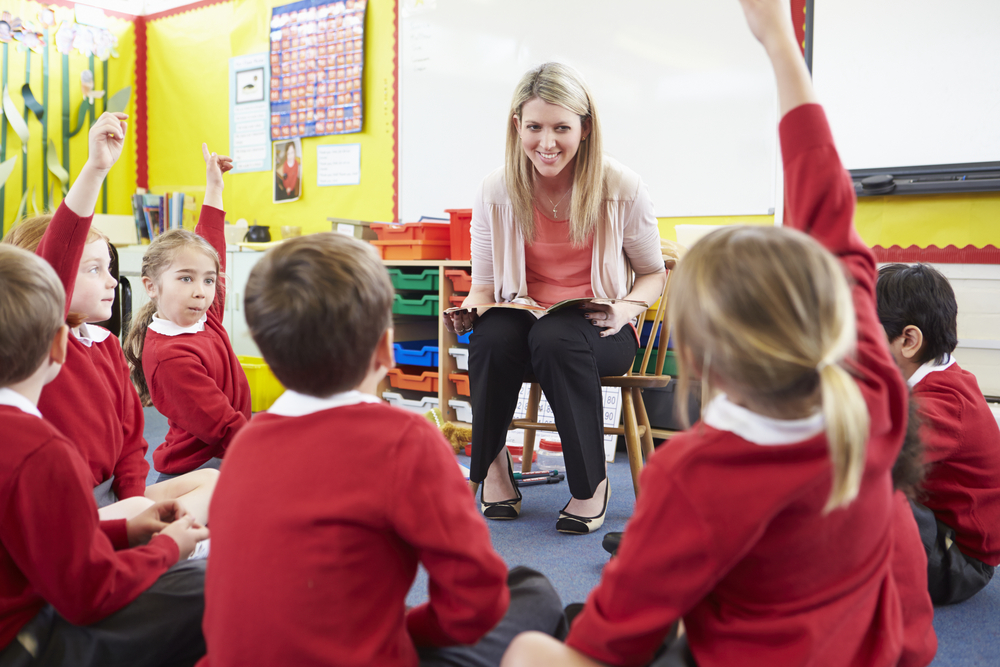
Much of children’s self-confidence and attitudes to learning stem from their ability to use talk effectively. The sooner they can develop good communications skills, the better prepared they’ll be for every aspect of school and home life.
Right now, we’re facing a pandemic-induced communication crisis. 96% of schools surveyed in autumn 2020 said they were “very concerned” or “quite concerned” about children’s language development after a year of lockdowns, mask-wearing, cancelled trips, and limited socialising.
So, in our latest blog, we explore how to support strong communication skills in your pupils. Plus, we’ll look at why it’s so important to encourage children to be effective communicators.
How do children’s communication skills start to develop?
From the first scream of a newborn baby, children are communicating clearly with those around them.
By the time they enter the education system through Early Years settings, they’ve already established many communication skills by observing and copying parents, family, and friends.
So, as educators, how we continue this journey towards shaping confident and intelligent communicators is crucial.
Speaking and listening are key within the teaching and learning process.
What are the benefits of effective communication skills for children?
Discussion and collaboration in the classroom unlock many benefits which stand children in good stead for the rest of their lives.
Improve literacy
Lessons focusing on improving speaking and listening skills – through activities set in cross-curricular contexts and topics – boost literacy and learning in general.
Raise self-esteem
Effective communication skills increase children’s self-esteem by giving them the confidence to communicate with those around them, set boundaries, and develop a sense of pride in themselves.
Develop creativity
When children can communicate well, they can express themselves in other artistic ways. This allows them to develop their creative side and nurture their wellbeing.
Spark imagination
Verbalising feelings and ideas enables children to unleash and develop their imaginations. We need the correct language and communication skills to tell stories, invent games, and explore different types of play. These are vital developmental skills.
Nurture independent thinking
Talking to children, asking their views, and encouraging them to discuss their ideas boosts their ability to think independently.
When you invite your pupils to share their thoughts, it nudges them to develop their own opinions and gain self-confidence.
Increase problem-solving skills
Communication is the key to practical problem-solving. With solid communicative skills, children find solutions and explore different ways to work together to overcome challenges.
Develop strong relationships
Communication helps us develop and maintain relationships with those around us. Therefore, communicating effectively allows children to form strong bonds with teachers and peers, making them feel supported and confident.
Three top tips for developing children’s communication skills
1. Help them expand their vocabulary
A wide vocabulary arms children with the tools to articulate their opinions and feelings.
So, don’t be afraid of using long or technical words when talking to children. This way, they can learn what they mean and how to use them.
Play with words using tongue twisters and rhymes to broaden their vocabulary. After all, making it fun will spur interest and excitement around words.
2018 research revealed more than a quarter of UK children arrive in reception unable to communicate in full sentences, so it’s vital that teachers have the techniques and skills to make up the shortfall.
2. Encourage them to use their new vocabulary
Our second tip is to encourage children to flex their newfound lexicon to develop their confidence.
Make them feel comfortable having a go, rather than worrying about pronunciation.
When they use a new word in the proper context, recognise their efforts, so they feel proud and self-assured to speak up next time.
After all, children need to use the words they learn, not just know them in their heads, as strong verbal communication skills are vital.
3. Value pupil voice
Valuing pupil voice works on every level, from asking opinions in the classroom to appointing school councils.
Give your pupils ownership over their learning and encourage them to articulate their views, questions, and reactions confidently in all situations.
What are the benefits of a broad vocabulary?
A broad vocabulary will help your pupils become confident, assertive young people who can express themselves, set boundaries, form positive relationships, and accomplish their goals in life.
Through having a rich vocabulary, children can:
- Express themselves – children who can express themselves verbally and in written work are more confident as people
- Collaborate effectively – successful communication aids better collaboration, where children can form bonds, work in harmony, and resolve conflicts
- Have empathy – a wide vocabulary heightens emotional intelligence and encourages children to be deeper thinkers, which leads to greater empathy
- Process information faster – when you understand more words, you can take in and process information more quickly, accelerating learning and understanding.
How can your curriculum support children’s communication skills?
Your curriculum is an important tool in your mission to develop confident young communicators.
Our global curriculum, ‘Learning Means the World’, has a core focus on communication.
In fact, it features specific speaking and listening lessons to help pupils learn how to talk confidently and appropriately.
Find out more here, or book your Bespoke Discovery Session using the button below.









